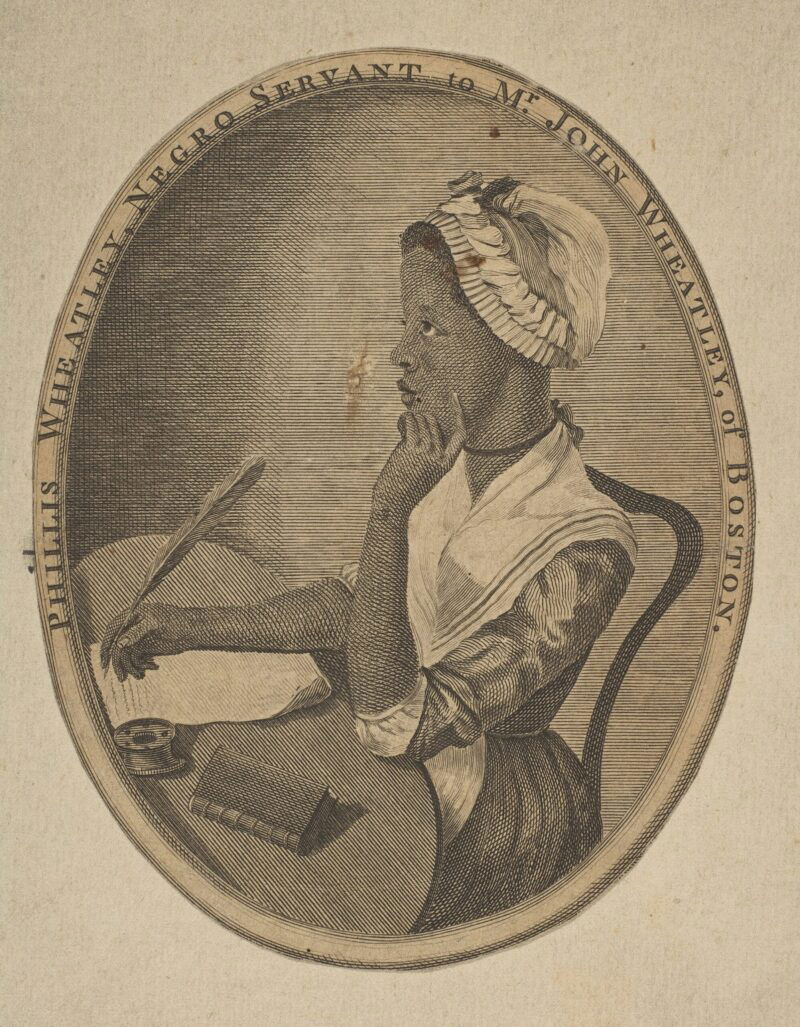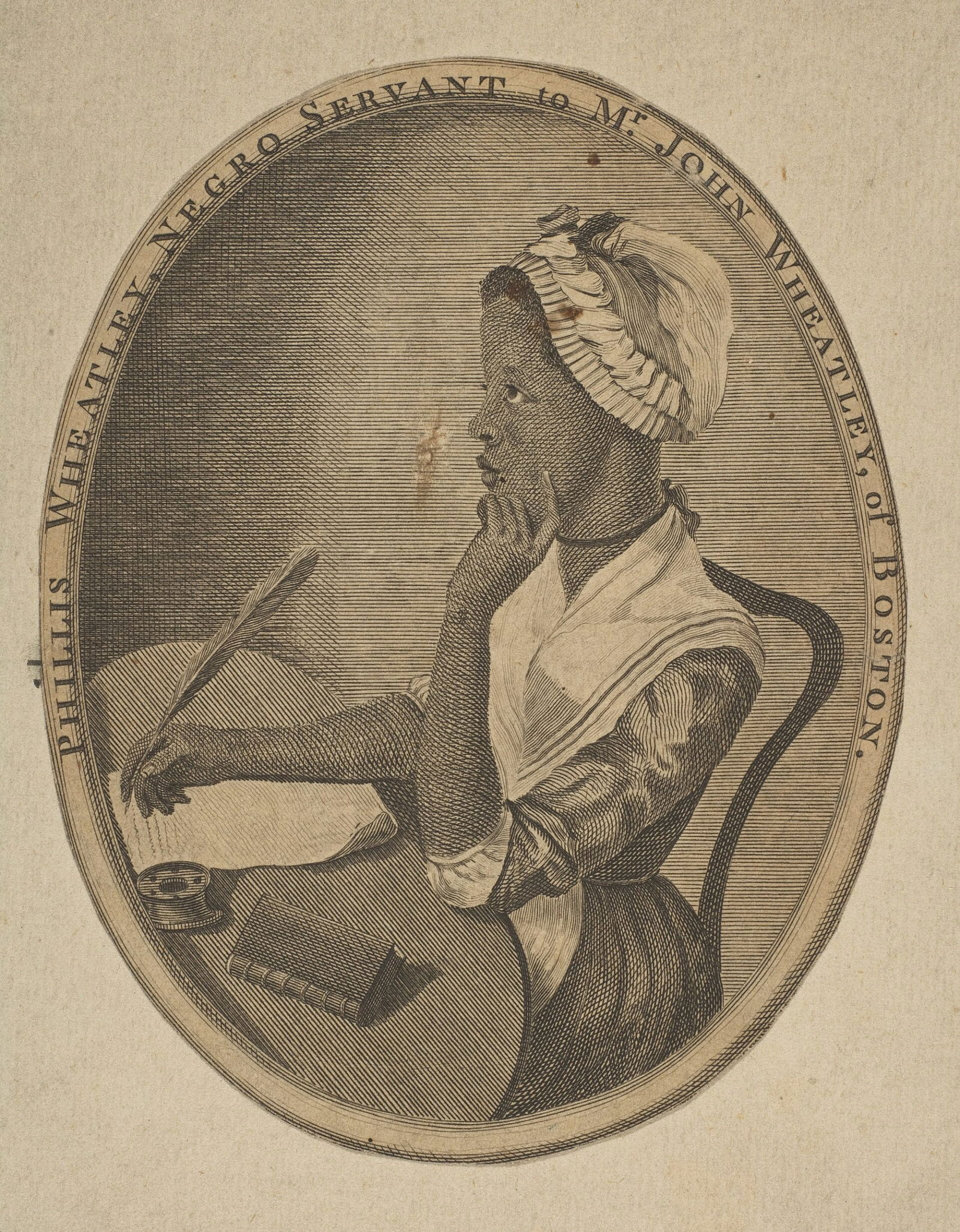Black Poetry Day does more than fill a spot on the calendar; it serves as a reminder that poetry has launched movements, created community, challenged power and given poets a lane to voice their thoughts and truths. These eight poets have contributed verse and sonnet that has contributed to the American and global canon of literature. .
Phillis Wheatley
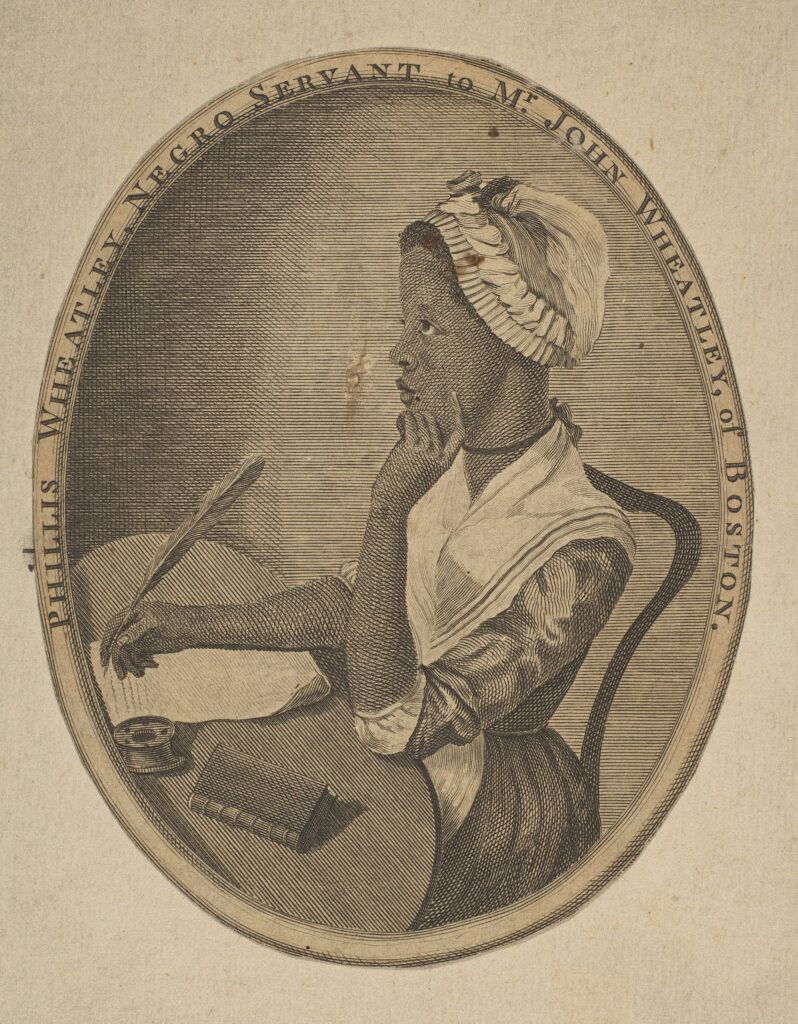
Phillis Wheatley was an enslaved poet whose talent vaulted her into the pantheon of poets. Her celebrated work, the 1773 collection Poems on Subjects, Religious and Moral made Wheatley the first Black woman in America to publish a book of poetry. Brought to Boston in 1761, Wheatley’s verses swiftly circulated throughout the colonies and across the Atlantic to England. Wheatley’s literary triumph upended 18th‑century assumptions about race and intellect, giving abolitionists an example to champion the end of slavery and the education and humanity of people.
Langston Hughes
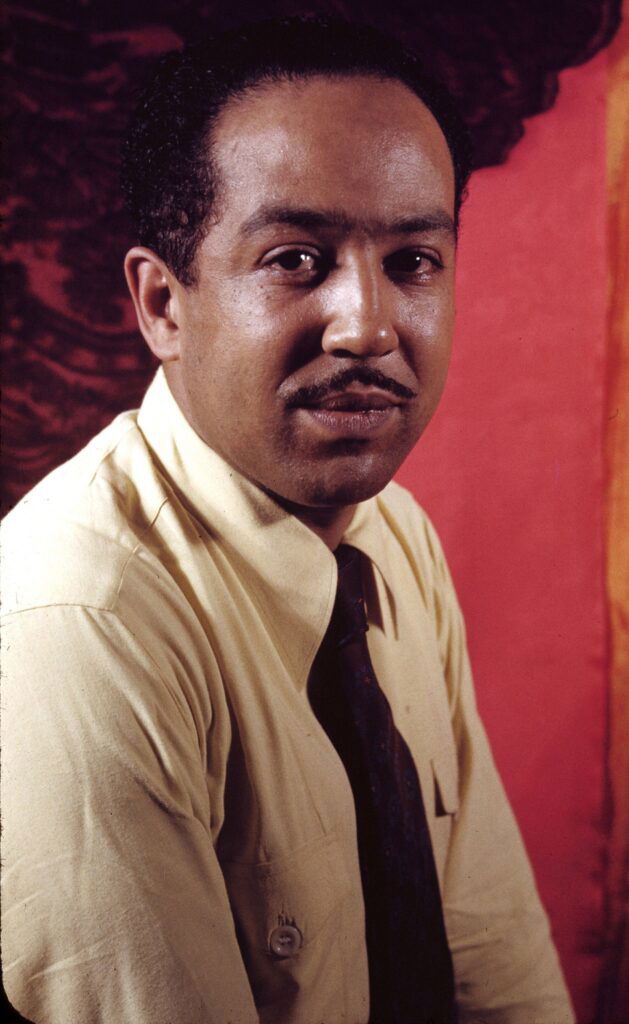
Photo credit: Carl Van Vechten, public domain
Langston Hughes loomed large in the Harlem Renaissance, juggling the roles of poet, novelist, playwright and columnist. He let the syncopated beat of Jazz seep into his lines, sketching the rhythms of life in a way that made poetry feel both within reach and political. His quoted verses “The Negro Speaks of Rivers” and “Montage of a Dream Deferred” still echo today. Throughout the 1920s Hughes’ output charted the course of modernism. Hughes championed the idea that poetry should spring from the people and speak back to them
Gwendolyn Brooks
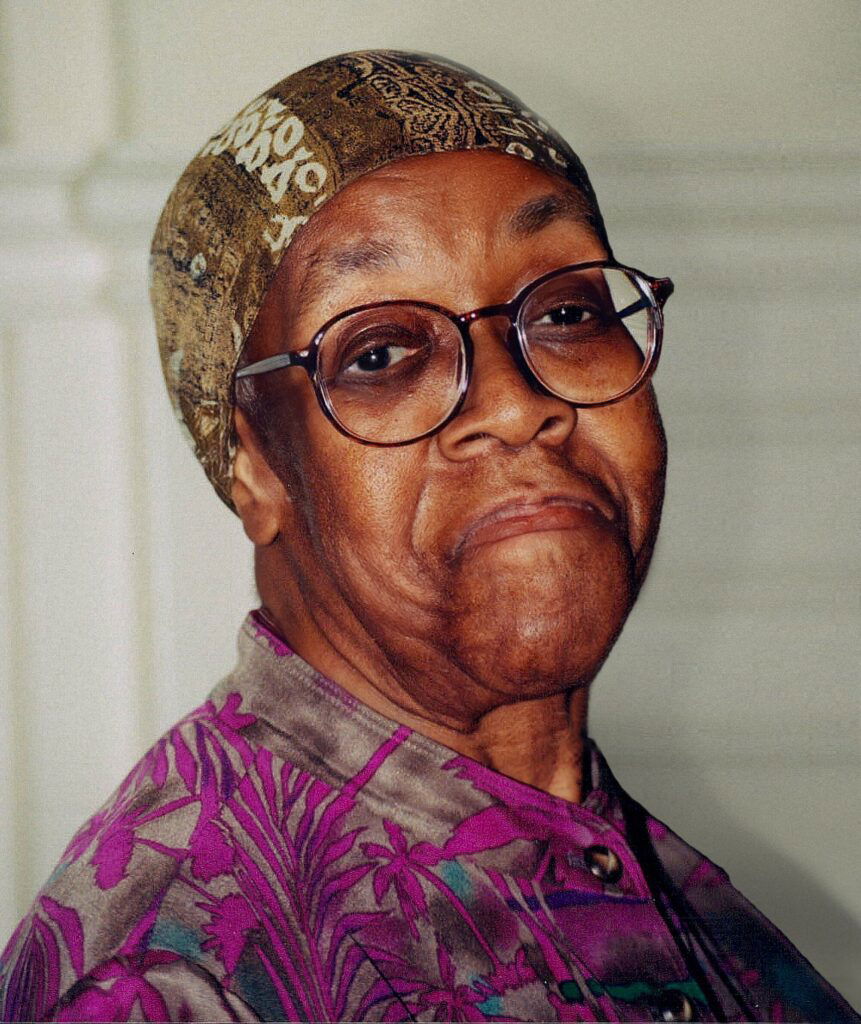
Born in Chicago, Illinois in 1917, Gwendolyn Brooks, poet, teacher and activist, crafted verses that cut into the issues of race, poverty, family and the stubborn resilience of life. Her Pulitzer‑winning collection, Annie Allen, was published while she was still a teenager. As the first Black writer ever to receive a Pulitzer, Brooks spent years shepherding younger poets, leaving an indelible imprint on the Black literary tradition.
Maya Angelou
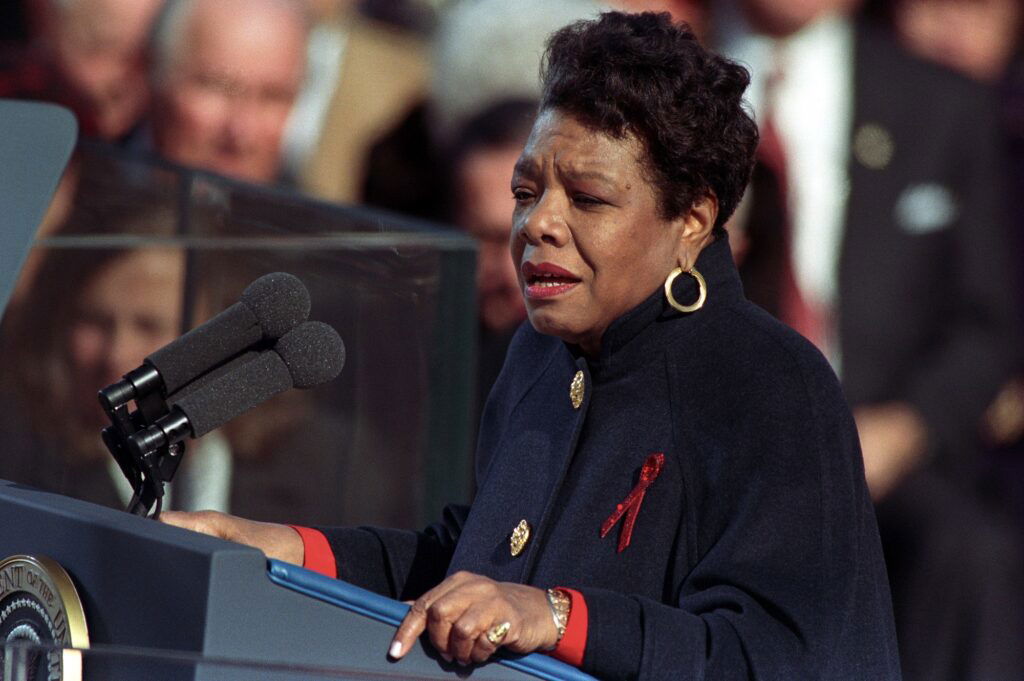
Maya Angelou, born Marguerite Johnson, entered the world 1928 in St. Louis, Missouri. Over the decades, she wore many hats: poet, memoirist, performer, and activist, leaving a mark on American culture. Among her pieces are the 1969 memoir I Know Why the Caged Bird Sings and the poem “On the Pulse of Morning” which she delivered at President Bill Clinton’s 1993 inauguration. Her career, which began in the 1950s and stretched well into the 2000s. She wove her testimony into the fabric of words. Angelou used lyric and memoir as a conduit to speak on trauma and communal struggle and in the process rose to the stature of great poet.
Amiri Baraka
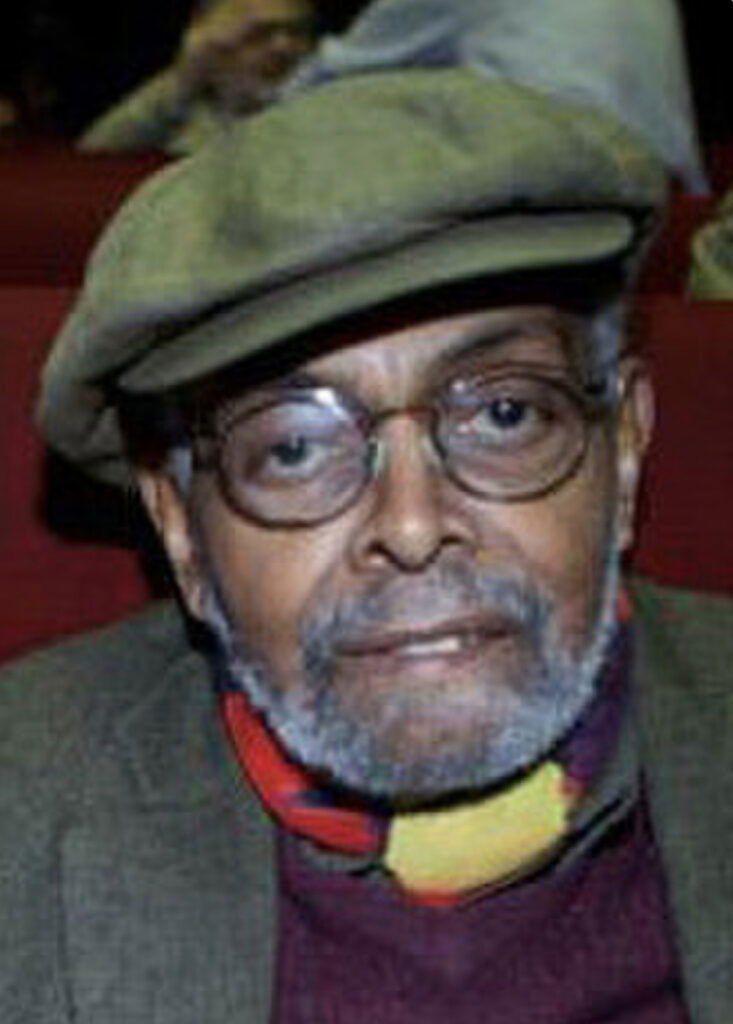
Amiri Baraka, born LeRoi Jones, in 1934 wore many hats: poet, playwright, polemicist. Baraka helped launch the Black Arts Movement. His body of work: poems, plays and essays, zeroed in on Black aesthetics and a fierce call for political self‑determination. During the 1960s and 1970s his influence was a linchpin of the movement. Baraka& had been active in the scene since the 1950s. Baraka repeatedly turned his gaze toward communities insisting that art be politically accountable and serve the cause of Black liberation.
Nikki Giovanni
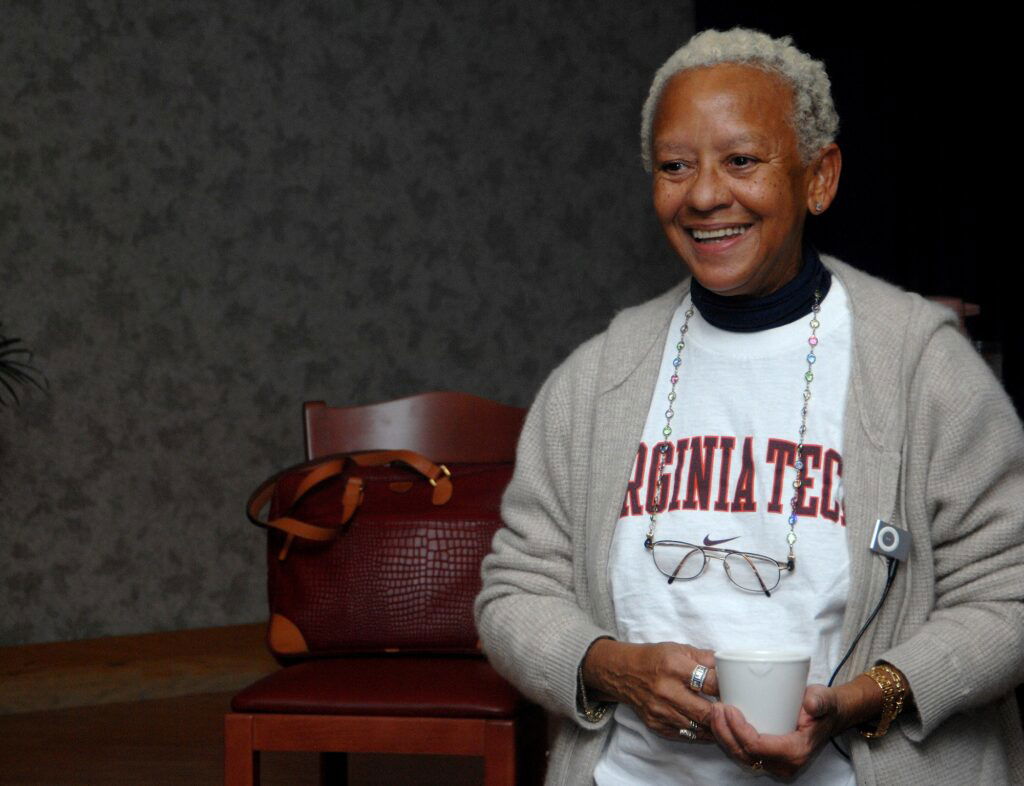
Nikki Giovanni, a poet, educator and a defining voice of the Black Power movement, let love, politics, family and grief swirl through her verses. Her first major splash onto the scene came in 1968 with the collections “Feeling” and “Black Talk” Thanks, to her accessible spoken word, Giovanni quickly earned the label “poet of the people,” a reputation that has endured for decades. Giovanni began publishing in the 1960s and has remained a vibrant cultural presence well into the 21st century. In the outpouring of tributes and accolades that followed her death,
Rita Dove
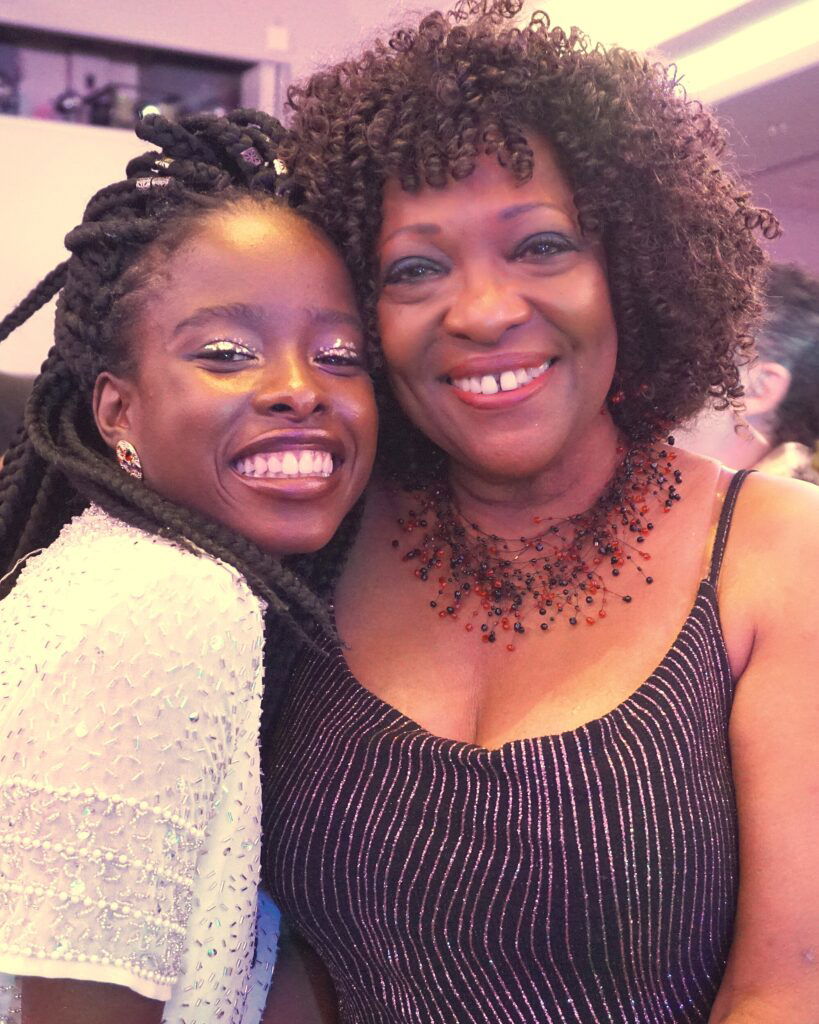
Rita Dove Pulitzer‑winning poet and U.S. Poet Laureate from 1993, to 1995 has pushed the tradition forward with a blend of imagination and deft formal craft. Her impact on letters has been acknowledged through a host of honors. A native of Akron, Ohio Dove rose to prominence by teaching, giving readings and serving in a series of high‑profile appointments.
Claudia Rankine
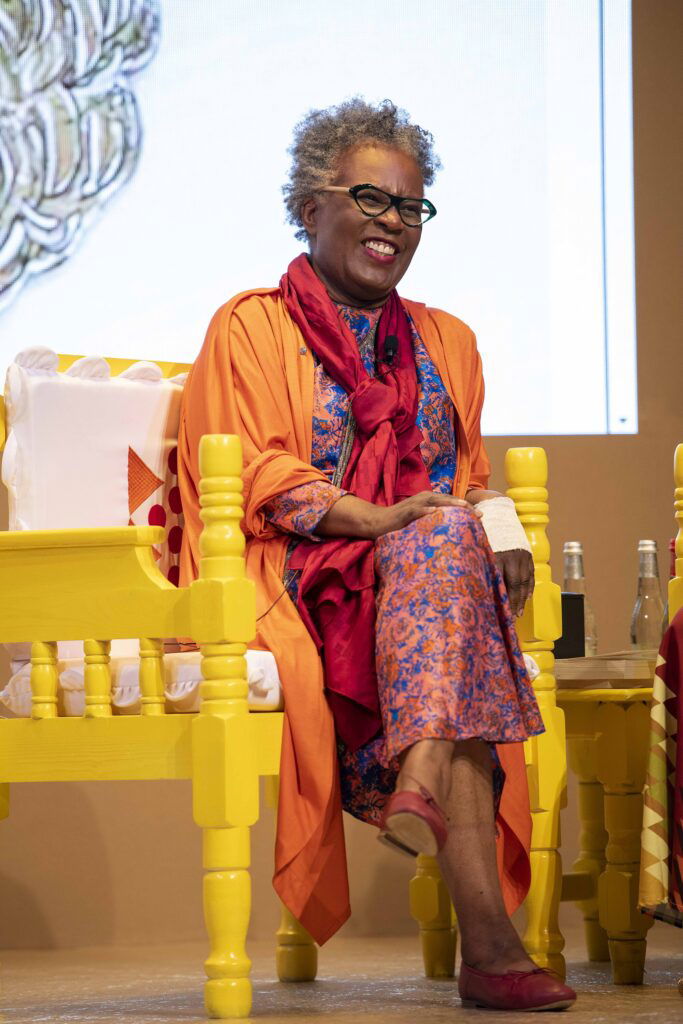
Claudia Rankine, a poet, essayist and playwright turns her attention to race, media and the lyric essay with a probing intensity famously in the 2014 volume “Citizen: An American Lyric” by weaving poetry, vivid images the book lays bare the quiet pervasive forms of everyday racism; the hybrid approach has scooped up a string of awards and sparked a fresh wave of discussion, about how race and aesthetic form intersect. Though “Citizen” appeared in 2014 Rankine’s oeuvre reaches back to the century and continues well into the early twenty‑first. Co‑founding the Racial Imaginary Institute Rankine now teaches in New York constantly expanding the limits of genre and documentary poetics to confront microaggressions, spectacle and the racial imagination that suffuses life.
RELATED CONTENT: Nikki Giovanni Posthumously Awarded Frost Medal For Lifetime Achievement


